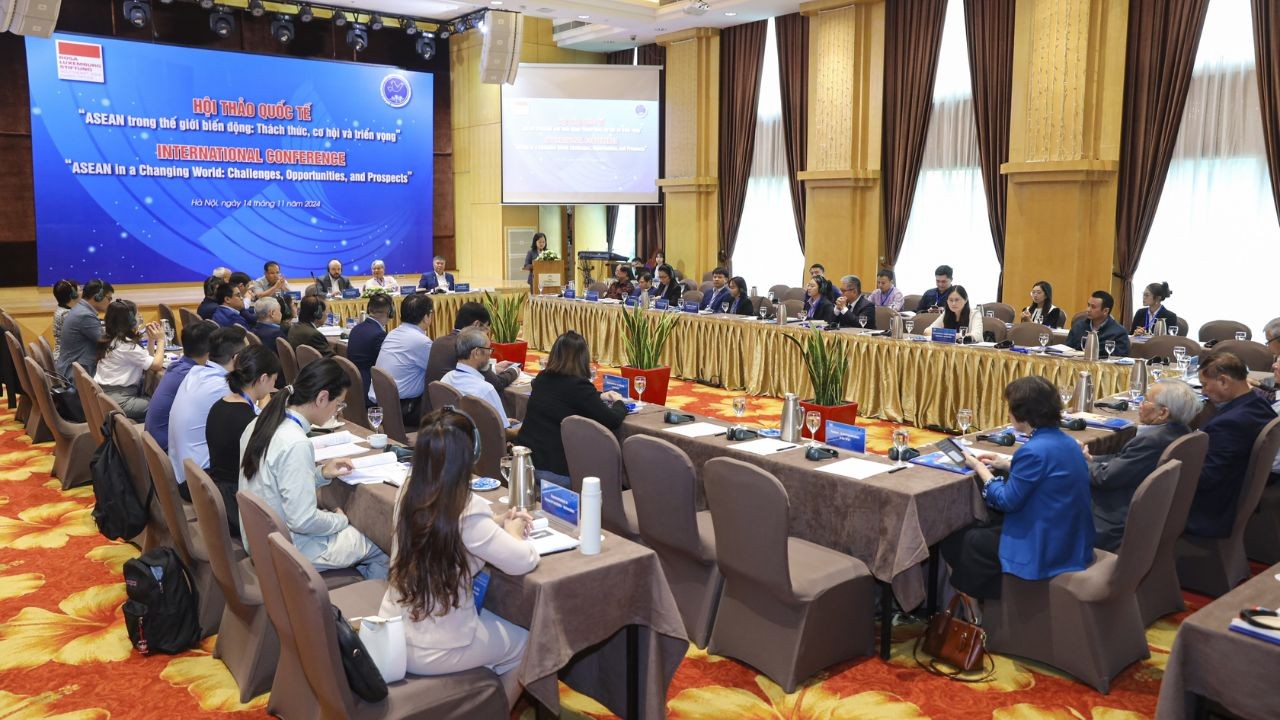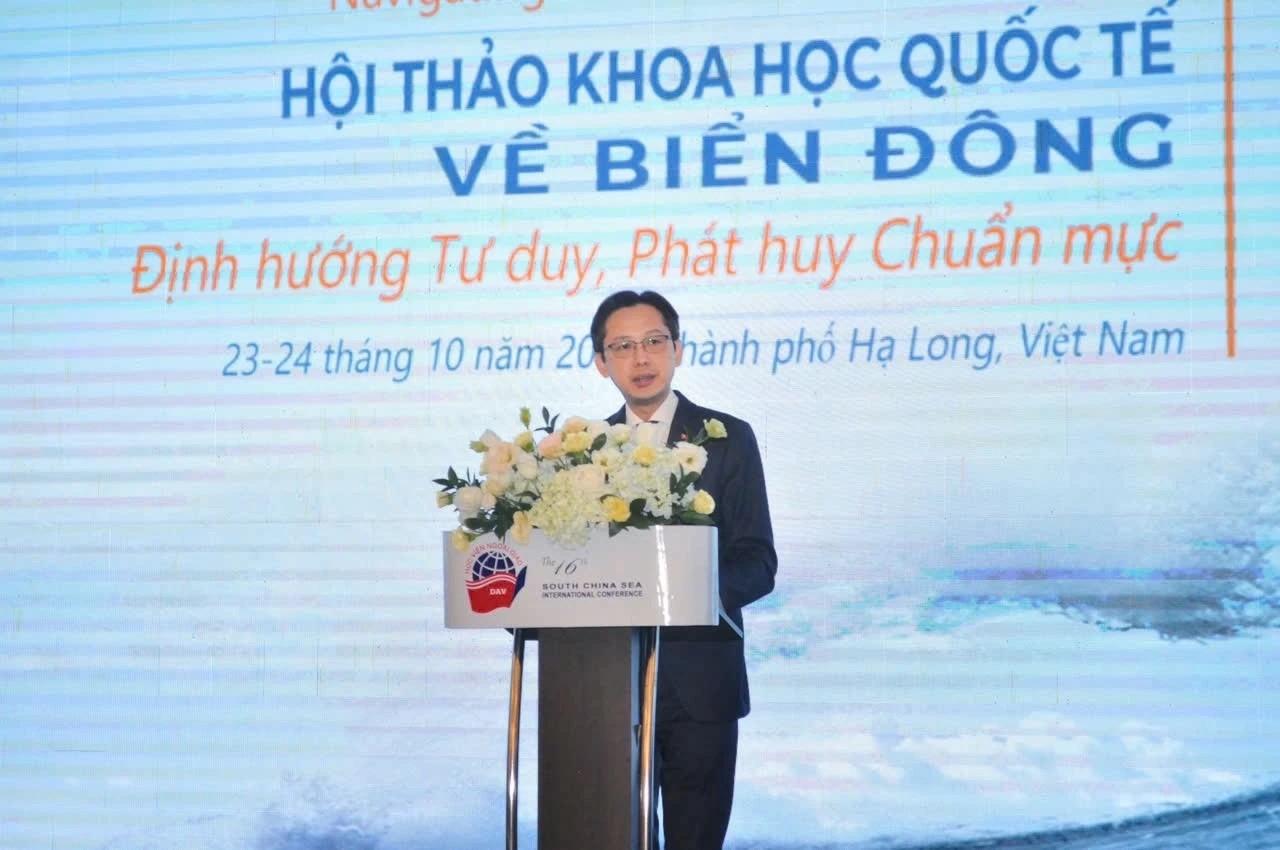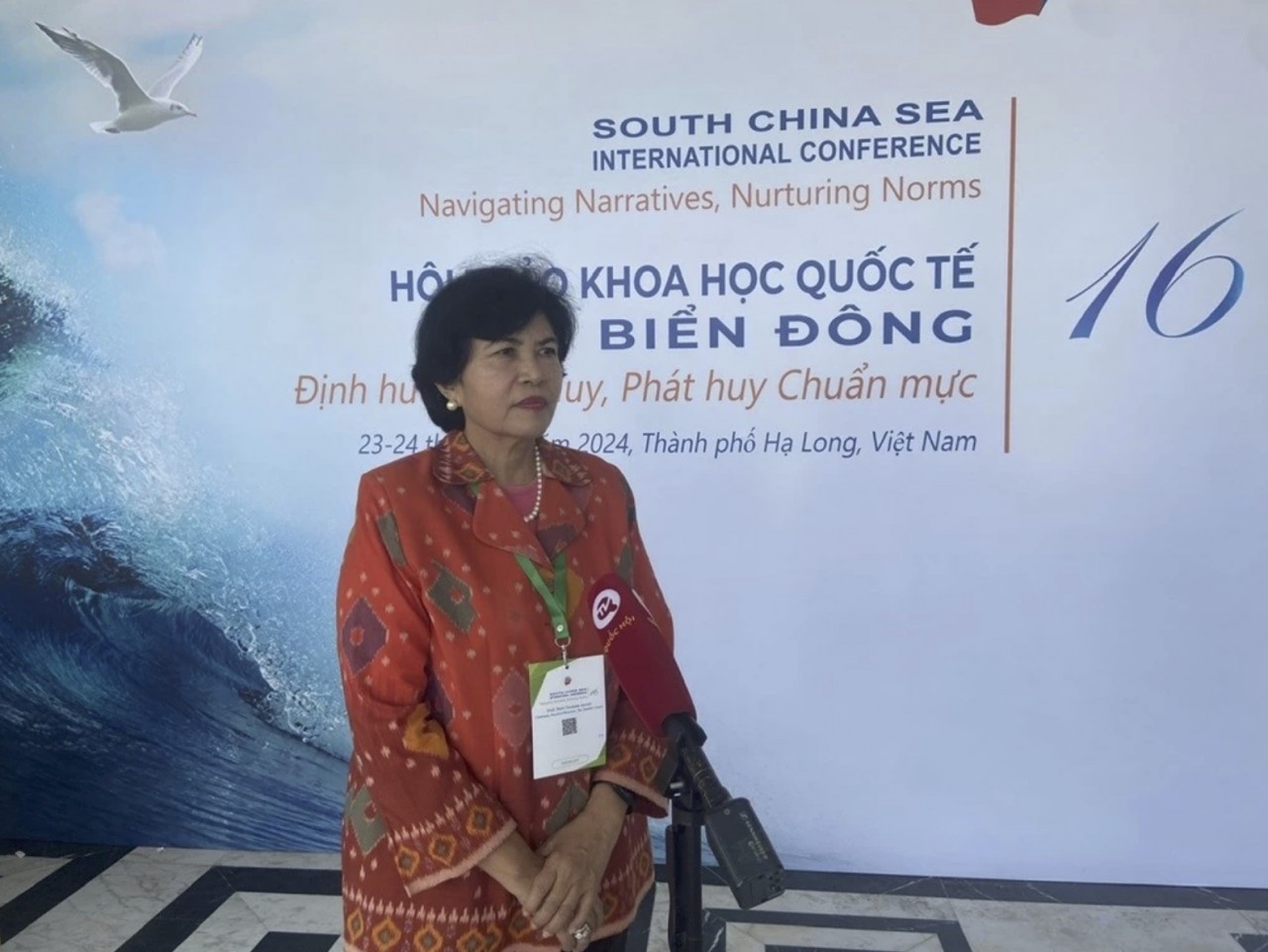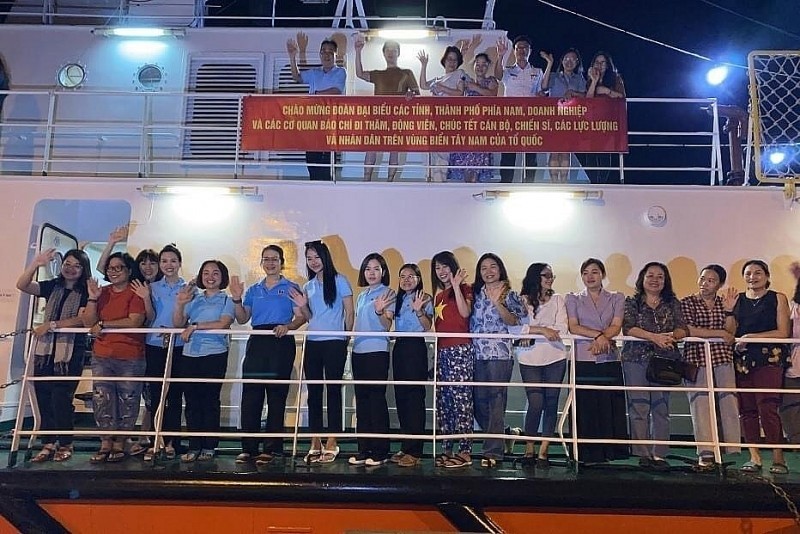International Law & Multilateral Cooperation - Keys to Resolving South China Sea Issue
On the 15th South China Sea International Conference themed “Luminate the Grey, Light Up the Green” taking place in Ho Chi Minh City, four main discussion sessions mentioned many important issues.
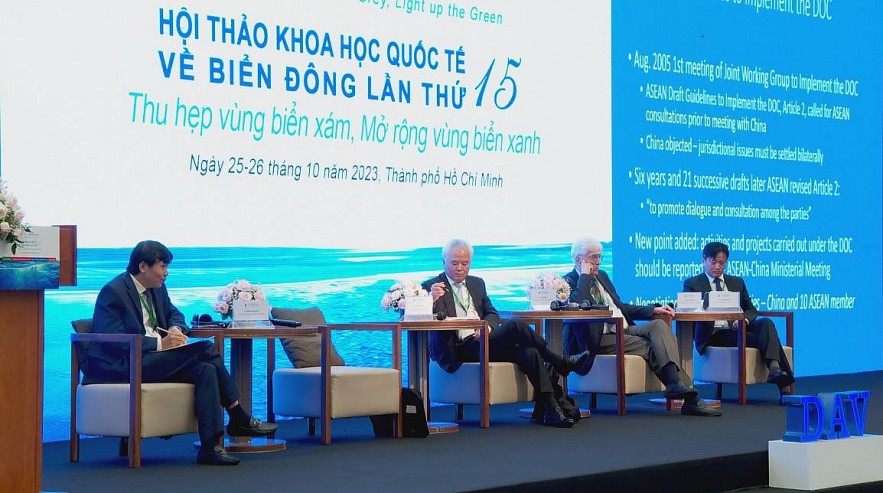 |
| Themed “Luminate the Grey, Light Up the Green,” the conference discusses topics related to the South China Sea issue. |
At the Conference, UK’s Minister of State for the Indo-Pacific Anne-Marie Trevelyan, said that Vietnam and the UK are close partners in maritime security issues. The UK always wants to strengthen relationships with partners to support sustainable development and jointly respond to common challenges to protect the free and open Indo-Pacific region. At the same time, she affirmed strengthening the UK’s commitment to ASEAN and its member countries for peace and stability in the South China Sea.
Martin Thümmel, Commissioner for East Asia, South-East Asia, and the Pacific at the German Federal Foreign Office, expressed his concern over the recent escalating tensions in the South China Sea, noting ASEAN plays the main role in defending international law and the constructive approach in the region.
The maritime boundary delimitation between Indonesia, Malaysia, and Vietnam and the ongoing negotiations have promoted regional cooperation, he said.
In Session 1 "South China Sea: The past 15 years", delegates said that in recent years, many new elements and aspects of the South China Sea issue have appeared such as multilateralization and internationalization; militarization of seas and occupied areas; and International law in dispute management. The South China Sea is currently considered an international issue, with more risks of conflict and if a conflict occurs, it will easily escalate and expand.
Countries are more interested in promoting dispute management measures such as the building a Code of Conduct of Parties in the South China Sea (COC) which is making some positive progress. However, there are currently some controversial contents in COC negotiations, such as scope of application, legal effect, enforcement mechanism, and role of third parties...
In Session 2 themed "Big Countries and Big Responsibilities: Cooperation and Coexistence in the Context of increasing competition", most scholars agreed that peace and stability in the South China Sea are important and a priority for every country to avoid clashes and confrontations in the region. However, the situation in the East Sea is becoming more tense, especially in the context of many changes in the world order.
There were opinions that building a network of technical infrastructure that allows control of the South China Sea region, is a factor that negatively impacts regional peace in the future. Some scholars suggested that countries can still share experiences and promote cooperation and transparency in the field of technology and engineering in the East Sea region.
Regarding "Multilateral approach to the South China Sea: A new trend?," in the third session, experts focused on discussing the trend and role of the multilateral approach to the South China Sea issue, contributing to minimizing risks, especially when dealing with aggression by powers. Most opinions affirmed that up to now, ASEAN has played a central role and needs to continue to promote its leading role in issues that require collective action and effort, including maritime security. Some experts suggested that blue economy cooperation is the solution to balance economic growth and sustainable management of seas.
On the topic "A legal framework for legal struggles", in session 4, scholars shared diverse approaches to "legal warfare" and agreed that currently, many countries use the law as a tool to achieve strategic goals. There was an opinion that in the South China Sea, some entities have used the law, promulgated internal laws, and misinterpreted the law in a "self-favorable" manner to consolidate inappropriate maritime claims that are inconsistent with international law. The majority affirmed international law, in which the 1982 United Nations Convention on the Law of the Sea (UNCLOS) is the backbone and framework for the countries’ behavior at sea.
 | Vietnam, Japan Discuss South China Sea Issue According to the Japanese defense minister, countries need to work together to maintain and strengthen the international order based on free and open rules. |
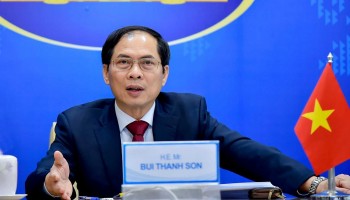 | Vietnam Calls For Boosting Cooperation Between ASEAN and China in South China Sea Issue Minister of Foreign Affairs Bui Thanh Son reaffirmed the importance of promoting trust, exercising restraint, and peacefully settling disputes in accordance with international law in ... |
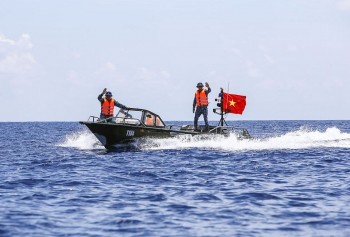 | Upholding Rule of Law: Necessary Measure to Solve South China Sea Issue The South China Sea Arbitration is the legal basis to assert that China's "nine-dash line" claim is completely baseless and illegitimate according to the 1982 ... |
Recommended
 Seas and islands
Seas and islands
Vietnam Endorses Common Voice on Ocean Jurisdiction
 Seas and islands
Seas and islands
Dialogue as Key to Settling Disputes and Advancing Law of the Sea
 Seas and islands
Seas and islands
RoK Navy Ship Pays Friendly Visit to Da Nang City
 Seas and islands
Seas and islands
Naval Region 5 Promotes Reading Culture, Fosters Patriotism
Popular article
 Seas and islands
Seas and islands
Coast Guard Region 2 Command Hosts Philippine Coast Counterpart
 Seas and islands
Seas and islands
Vietnam - Thailand Navy: Coordination to Well Address Problems at Sea
 Seas and islands
Seas and islands
Honoring the Fallen: Incense Offering for the 37th Anniversary of Gac Ma
 Seas and islands
Seas and islands




